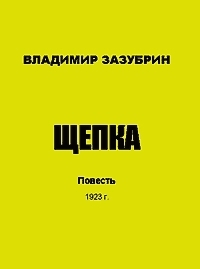What do you think?
Rate this book


93 pages, Unknown Binding
First published January 1, 1923
Above the building, the velvet, heavy, tumid with blood red flag is splashing in the wind with the gory spray of its frayed fringes and tassels.
At night the three-storeyed white stone house with a red flag on the roof, with a red plaque on the wall, with red stars on the caps of the sentries, peered into the city with its famished, gleaming square eyes of windows, showed the teeth of its cast-iron barred gates, grabbed, chewed the arrested by armfuls, swallowed them with the stone gullets of basements, digested them in its belly of stone and then with phlegm, saliva, sweat, excrements spitted, spewed, vomited them out to the street. And by dawn, tired, yawning, grinding its iron teeth and jaws, stuck out of the gates red tongues of blood.
Pang echoed in the ears. White raw carcasses of meat crashed to the floor. Chekists with the smoking revolvers quickly retreated and at once cocked their guns again. The legs of the shot ones were twitching in agony.